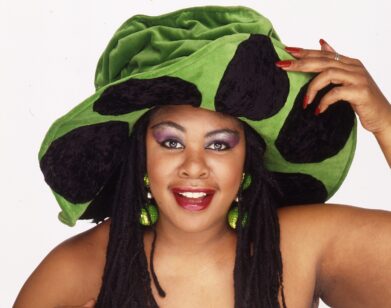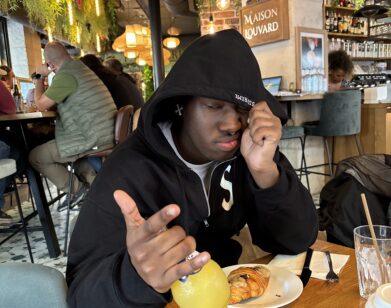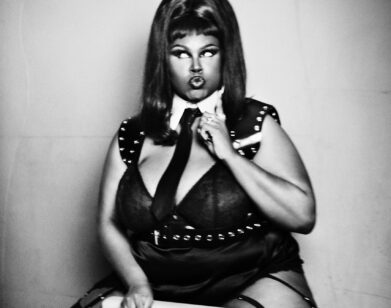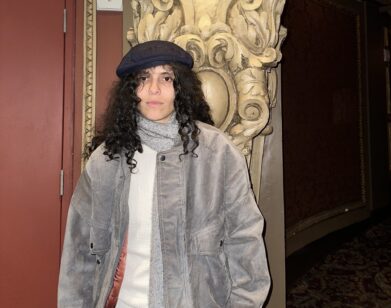Devine Inspiration
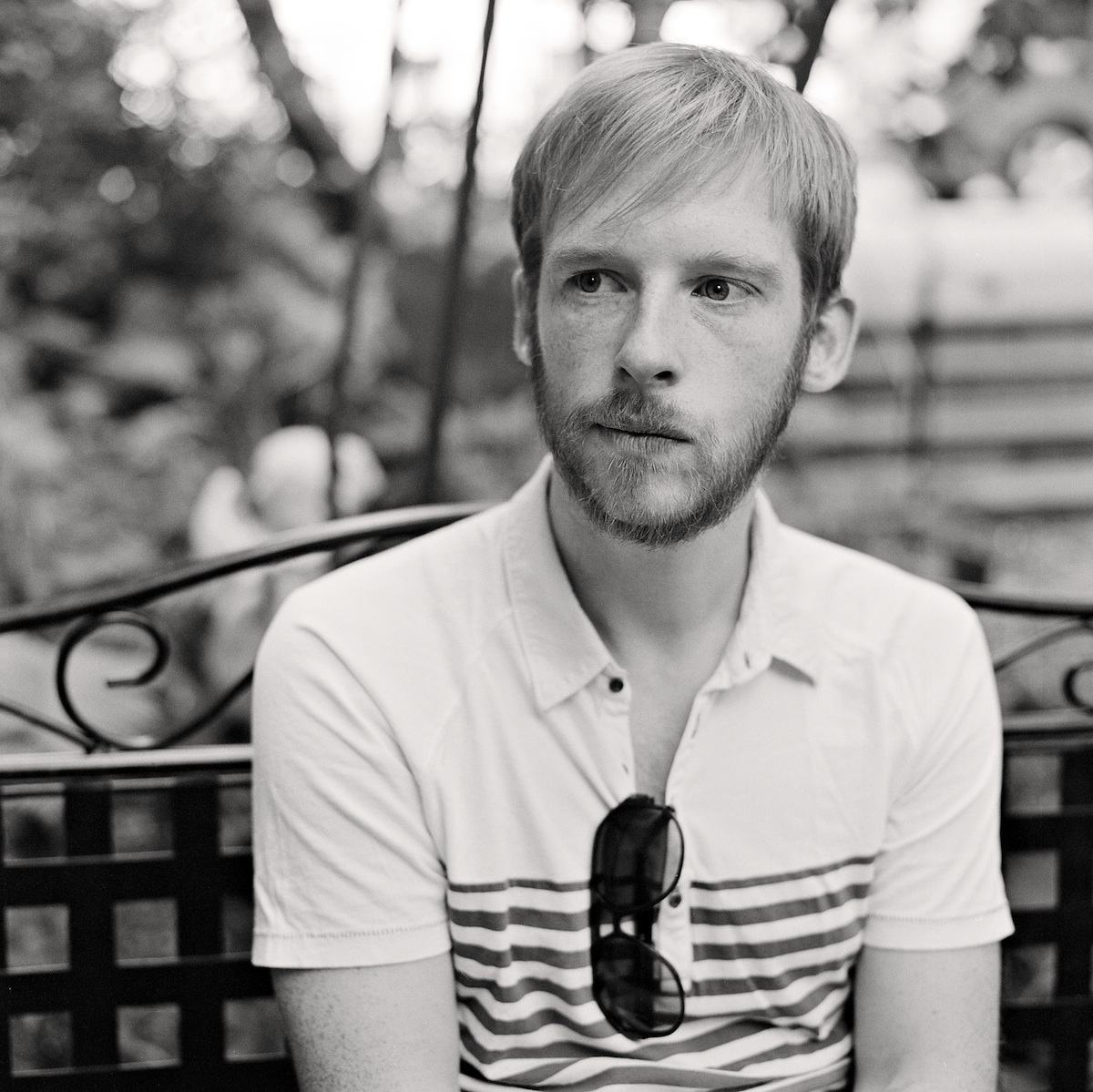
KEVIN DEVINE. PHOTO BY MICHAEL NIKA
Even while touring like a nomad, Kevin Devine remains a Brooklyn boy at heart. Devine’s music is the culmination of his love for great pop structures (cf.: Nirvana, The Ramones, The Strokes) and his experiences growing up as a teen in Staten Island’s hardcore scene. Devine wanted to be a musician since the age of 15, when he hoped Sonic Youth’s Thurston Moore and Pavement’s Stephen Malkmus would listen to the cassette demos he threw onstage during their sets at Lollapalooza.
His sixth album, Between the Concrete and Clouds, reveals Devine’s curiosity about life and observations about the world at large. Devine’s mix between acoustic-pop, slight hardcore and folk-rock songs has led to playing with quite the variety of lineups. Devine has played with Corrine Bailey Rae and KT Tunstall, but has also spent much of his touring experience (at least twelve tours) with either Brand New, Jesse Lacey, Manchester Orchestra or Andy Hull.
We caught up with Devine in Tompkins Square Park, where he spoke about being extremely lucky, plus his love for New York City—and sang a little bit of Alanis Morissette to us.
ILANA KAPLAN: What’s the most challenging thing about songwriting for you?
KEVIN DEVINE: That feeling that after you finish one that another one’s not gonna happen. I’ve been writing songs since I was twelve. They’ve been happening for nineteen years. I think there’s this part in my head that’s in total panic mode when they’re done that I’m not going to be able to do it again: come up with another chord change that feels interesting or lyrical resolution that feels compelling enough to exist in the world. I think there really is this fear that you’re going to wake up one day and not know how to do it anymore. There’s other aspects that can be a little bit of a grind—[though] not a grind compared to a person that has a job working in a coalmine or something. I’m very okay with the fact that I have a very lucky job. That line when you come up with the melody or the harmony or the chord change, that’s really exciting. That’s not bullshit. I can be alone in a room doing that and feel totally at fulfilled and at peace.

KAPLAN: What makes Between the Concrete and Clouds different from your other albums?
DEVINE: I think it’s better. I like it more. I also think the last record was a little more structurally freewheeling. I really enjoyed that, but it’s 11 songs and it’s almost an hour long. The central songs, like “Carnival” and “Brother’s Blood,” are these kind of exploratory seven-to-eight-minute-long songs. I was kind of stretching in that way. Some of that was musicality and some of it was trying to say what I wanted to say with words. This time, I’ve been listening to a lot more concise music; music that gets there in three or four minutes. I wanted to write a record that was a pop record that still dealt with the themes that I like to deal with. So, I try to keep, what you hope is the thematic tangle of it, not clean, easy songs. Speaking about what it’s like to be a person, which is not clean and easy all the time, but write something that is more structurally traditional album as me. The record is like 38 minutes long. It feels like when it’s over, which is a nice thing, is that you’re really surprised. It’s good, because I feel like there’s some bullshit in my brain, is that you confuse saying something important with saying a lot. I grew up with Nirvana, but I’ve been listening to them a lot this summer.
KAPLAN: Probably a subconscious thing because of the 20th-anniversary album.
DEVINE: I think that’s why. Some of those songs are fifteen words. Literally fifteen words. “School” from Bleach is totally insightful, incisive, abrasive, and smart. It’s literally fifteen words.
KAPLAN: It’s kind of like choosing your favorite child—but personally, what are your favorite songs that you’ve written and produced over the past nineteen years?
DEVINE: It changes all the time. My favorites to perform change based on the format of the performance: if I’m playing alone, playing with the band, what kind of arrangement the band is, what pieces we have present. Right now, I feel that noticeably, when we’ve been rehearsing for this tour, that I really prefer playing the new stuff. I think that will naturally exhaust itself too, and we’ll kind of rediscover something. I always really love playing this one song, “You’re Trailing Yourself,” from Put Your Ghost to Rest. I always really love the way it fits together and the movement of it. I really like the lyric and the melody. I also know it’s not by any stretch… I know if you looked on iTunes, I don’t think it would be in the top 20 most popular songs of mine, but it’s one that I really love. From the newer batch of songs, there’s a song called “Luxembourg” that was a stand-alone single for Record Store Day. I really love playing that song. It’s a sad song, but it doesn’t feel that way to me. There are a lot of songs. We’re rolling into this tour with 27 songs. We’re still leaving out like 60 songs. It’s kind of a cool problem.
KAPLAN: There would be a lot of people passing out. Including you. Do you find that most of your songs are personal anecdotes or observational pieces?
DEVINE: It’s all of that. A song like “Luxembourg” is absolutely a song about me trying to make sense of some relationships I’ve had in my life and feelings I have about the concept of relationships in general and realizing some character defects of your own. There’s a third verse of that song about someone I was close to who is still a part of my life, but who’s now married and has children. It’s beautiful. It’s beautiful that that’s the way that is and that I get to have this relationship and be friends with this person. There’s also like a little bit of, you know, you might be through with the past, but the past isn’t through with you. Those are complicated feelings. That is what I think it’s really like to be a person. I know that’s what it’s like to be me. Then there’s stuff like, “The City Has Left You Alone,” which is an observational song, which is almost about a composite of a bunch of people in a city like New York and maybe being a little critical, slinging some arrows at some of that world, not about a specific person, but about observations you’ve had about yourself and about that culture in general.
KAPLAN: Is there another Bad Books record in the works?
DEVINE: It’s definitely not in the works, but there will be another Bad Books record. We have a show at the De Luna Festival in Pensacola, Florida, which is a pretty rad festival. I’m playing it, and Manchester Orchestra is playing it. So, Bad Books is playing it. I started writing a song recently and was like, “this is a Bad Books song.” The songs that ended up on the Bad Books record were just songs that I wrote. They would have been probably songs that might have been on a different version of my next record had Bad Books not existed. I don’t know what that means. If Andy (Hull) hears that I’ve written one song, he’ll write twelve. I think we’re going to try and make it early next year.
KAPLAN: I know you changed labels over the years. Has that influenced your music at all?
DEVINE: No, I don’t think it’s had any influence at all in music. I think it’s really lucky that people still want to put my records out. I don’t mean that in a self-negating way. I mean it because it’s really hard for record labels, especially boutique record labels, to make money right now. I don’t think I’ve made a record label money. I also haven’t made much money from my association with record labels. [laughs] I think this is definitely the case with Razor & Tie and Favorite Gentleman. They put records out because they believe in them. I think that’s just great.
KEVIN DEVINE’S SIXTH STUDIO ALBUM, BETWEEN THE CONCRETE AND CLOUDS, COMES OUT TODAY. HE WILL PLAY THE HIGHLINE BALLROOM ON OCTOBER 22.

